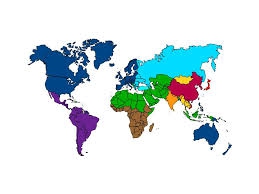Etude et analyse
Lorsque l’on examine les rapports entre civilisations, il faut avant tout clairement distinguer les acteurs étatiques pourvus du droit et de la capacité à l’action politique, et les sphères culturelles d’envergure et de cohésion variables, lesquelles ne le sont pas. Comme l’avait observé l’excellent analyste américain, William Pfaff : « Aucune de ces civilisations, assez arbitrairement définies, n’est ou n’a été, en tant que telle, une entité ou un acteur politique. Les nations agissent. Les gouvernements font des guerres. Mais les civilisations ne sont pas des unités politiques et aucun indice ne prouve qu’elles le deviendront. » Ceci ne signifie nullement, on le verra par la suite, une quelconque sous-estimation des facteurs culturels et identitaires.
Il s’agit seulement de constater que la possibilité et la responsabilité de façonner les événements se trouve au niveau des entités politiques, à savoir celui des Etats. Au regard de la relation Islam-Occident, nous allons donc porter notre attention sur les potentialités et les limites de la politique. En commençant par séparer les dimensions interne (au sein d’une même entité politique) et externe (entre entités politiques) qui obéissent à de complètement différentes règles du jeu. A l’extérieur, c’est la logique des relations internationales qui règne, et c’est sur cette base que l’on doit trouver un équilibre entre la promotion des changements jugés désirables à long terme et le maintien, en toutes circonstances, de la stabilité.

La dimension interne des pays, lesquels sont comme autant de briques du système international, se définit en revanche par les lois particulières de l’Etat souverain : ici, le paramètre le plus important est d’assurer l’indivisibilité de l’ordre constitutionnel, la cohésion de la société, et la marge de manœuvre de la décision et de l’action politique. Les niveaux international et intérieur sont, bien entendu, liés l’un à l’autre par une interaction profonde et permanente. D’un côté, faute de politiques appropriées dans la dimension internationale, l’entité étatique peut se retrouver sous immense pression extérieure (migration massive, menaces militaires, environnementales etc.). De l’autre côté, cette entité ne sera en mesure de peser sur les processus extérieurs que si elle garde toute sa crédibilité, c’est-à-dire sa triple intégrité constitutionnelle, sociale et politique. (...)
Résumé préalable A la place des classifications généralisatrices du genre « islam » et « Occident » ou des scénarios simplificateurs sur « la fin de l’histoire » et « le choc des civilisations », la grille de lecture pertinente est à la fois plus complexe et plus réaliste. Vu sous cet angle, les slogans à la mode sont incongrus : en effet, le cours des choses continue d’être déterminé par les « vieux » ressorts et enjeux, à savoir politiques, économiques, identitaires et sociétaux. Et la solution, de toute évidence, ne peut venir que du côté de la politique – en tenant compte de l’impératif de la souveraineté, des rapports de force internationaux et des facteurs socio-économiques. A l’intérieur, ceci implique une rupture radicale avec la présente attitude de capitulation et de paralysie dissimulée sous la devise « multiculturaliste », et l’élévation de la triade « politique familiale, régulation de l’immigration, intégration sociale » au rang des priorités immédiates.
Pour ce qui est de nos relations avec le monde arabo-musulman, il nous faut en premier lieu nous assurer d’une position de négociation indépendante et crédible, afin d’être en mesure d’exprimer nos intérêts et nos convictions. Ce n’est que sur cette base que nous pourrions nous engager à chercher les formules les plus appropriées pour notre double ambition qui est la poursuite parallèle d’un processus de démocratisation et la préservation de la stabilité internationale. Concernant les aspects civilisationnels des rapports entre « l’islam » et « l’Occident », l’essentiel serait de contrer et d’endiguer les effets déstructurants du phénomène globalisation-américanisation. Car la réhabilitation et le renforcement de la capacité de décision et d’action politique, de même que le respect des identités et des souverainetés étatiques est une condition sine qua non de tout dialogue digne de ce nom.
Texte complet en hongrois.
(In: Globális biztonsági kihívások, NATO szerepvállalások és Közép-Európa, ed. Glied Viktor - Tarrósy István, Pécs, 2006.)
Tags:
islam, ue





















